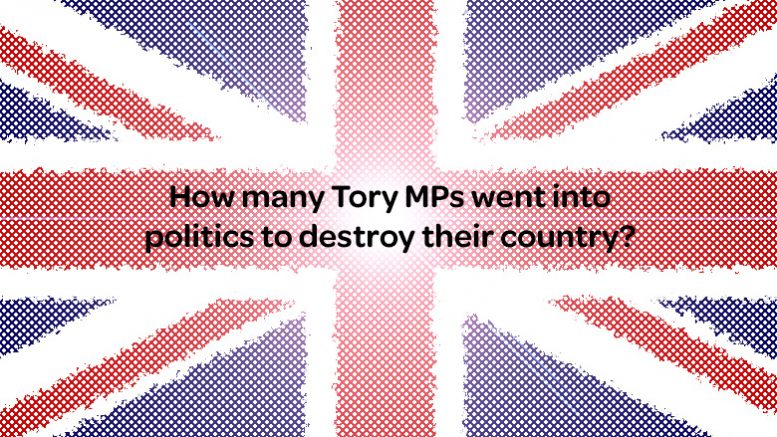Green World
By Molly Scott Cato
October 24, 2019
This week Johnson’s failed attempt to get a quickie and high-profile divorce with the EU has dominated the news. Receiving far less attention has been another rocky relationship that looks unlikely to survive any more betrayal. It’s the relationship between the countries of the United Kingdom, and this too looks like it’s heading for divorce.
It was all smiles in Dublin when news emerged that a deal might be in the offing, but behind the beaming faces of Johnson and Varadkar was a deal that threatens the future of the United Kingdom. A deal that has sown confusion and division in Northern Ireland and left Scotland feeling cheated on.
It is astonishing to see so many representatives from the Conservative and Unionist party happy to vote for a deal that could within five years see an Independent Scotland and a united Ireland. Perhaps though this is to reflect the views of a majority of Tory party members who are prepared to ditch Northern Ireland and Scotland if it means that England can leave the EU.
For Ireland, becoming a unified state is of course a long-standing dream. And a poll last month showed a small majority among people in Northern Ireland in favour of a united Ireland.
The excitement with which Varadkar welcomed the concession of Northern Ireland by Johnson was clear. Perhaps no surprise as the deal establishes special arrangements between Northern Ireland and the EU that will pull the province further towards the economic orbit of Dublin and Brussels than London. But it also gives the North a very particular role in deciding how things play out. Putting such pressure on the Stormont political institutions that are still young and fragile feels a risk at this stage.
Beyond the issue of Northern Ireland, the prime minister’s stubborn refusal to pay any attention to the needs of Scotland, or even to pay it basic respect as a constituent part of the UK that enjoys considerable political autonomy, has greatly enhanced the chances of an independence vote. Scotland can make a fair claim to be a natural member of the European Union given the resounding majority for remain in the EU referendum. And if as an independent nation it joined the EU, it would by no means be the bloc’s smallest member.
How many Tory MPs went into politics to destroy their country? The fact that Brexit has become a national disease is proven by the decision to support a deal that is likely to see the end of the United Kingdom.
Although the creation of a nation state feels like it should be a weighty and well considered enterprise, the reality is that countries are born and die for all sorts of bizarre reasons. Scotland became absorbed into the United Kingdom largely because of the failed Darien venture – when Scottish financial adventurer William Paterson attempted unsuccessfully in the 17th century to make Scotland a major broker of trade across the Pacific Ocean.
So it seems strangely fitting that through his gamble, Boris Johnson and his Brexiteers may precipitate the sort of hard Brexit that will make the independence of that fine nation inevitable.
Pondering the possible long-term impacts of the Boris Johnson’s Brexit deal brought to mind one of the strangest days of my time as an MEP. At an event in Gibraltar to mark their national day, there were flag-waving patriots including Ian Paisley Jr and Nigel Evans and a large number of UKIP MEPs. Alongside were progressive MEPs from the Greens and Labour. We were all happy to support Gibraltar’s national day but as a Green I was somewhat disturbed by the hyper patriotism and excessive flag-waving – the focus of which was of course the union.
Yet it is perfectly consistent to support Scotland, Wales and Northern Ireland enjoying autonomy; even full self-government or independence, while being concerned at the way in which the union splits. After all, as in any divorce, there’s always the children to think about.
Molly Scott Cato is Green MEP for the South West and Green Party spokesperson on Brexit.
